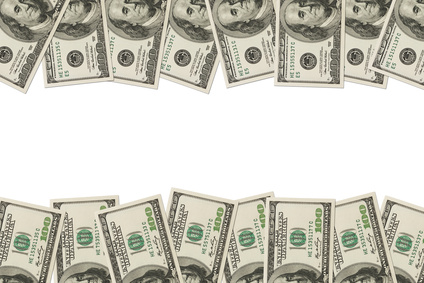Does a High Income Translate Into High Happiness Levels?

“A large income is the best recipe for happiness I ever heard of.” ~Jane Austen, Mansfield Park
A wealth of research exists on the connection between income and happiness. A key concept in this research is the Easterlin paradox, a term coined by Richard Easterlin from his well-known 1974 study. This is the idea that within a specific country, people with higher incomes are happier than those with lower incomes, but when comparing one country to another, richer countries are not happier than poorer ones (hence, the paradox).
Easterlin paved the way for future studies examining the link between income and happiness. In one recent study, researchers found that higher incomes are associated with higher happiness levels, but only up to a certain point. The magic number: an annual income of $75,000. Researchers looked at two types of well-being: emotional well-being (how people feel on an everyday basis) and life evaluation (what people think about their life when they take a look at it overall). As far as emotional well-being, the lower a person’s annual income falls below $75,000, the unhappier he or she feels. But, at $75,000, the effect is no longer noticeable. No matter how much more than $75,000 people make, they don’t report any greater degree of happiness, because after that point, happiness is more strongly associated with things such as life circumstances than with money.
Yet, as far as life satisfaction goes, people who have higher incomes are more satisfied when they look at the bigger picture of their lives. In summation: annual income affects how satisfied people are with their lives, but it won’t affect the quality of people’s everyday emotional experiences beyond a certain threshold.
Another study purports that it’s not absolute wealth (the amount of money people earn) that matters, but relative wealth (the amount they earn in comparison to other people). Researchers ranked individuals’ incomes in comparison to people such as their peers, neighbors, and friends. They found that an individual’s rank more strongly predicted happiness than absolute wealth. The higher an individual ranked within his or her age group or among neighbors, the more status he/she had and happier he/she was.
A recent study took a different spin on this topic of relative wealth by looking at the psychological consequences of income inequality. They wanted to answer the question: are individuals happier when national wealth is distributed more evenly?
It turns out that Americans were on average happier in the years with less national income inequality than in the years with more national income inequality. The phrase “on average” is used because higher levels of income inequality correlated with lower levels of happiness only for lower income levels. For people earning higher incomes, inequality had no effect on their happiness. What explains this connection between high levels of income inequality and low levels of happiness? According to researchers, the key lies in perceived fairness and general trust. Americans trusted other people less and perceived other people to be less fair in the years with more national income inequality. In fact, those at lower-income levels don’t become unhappy because they’re making less money; they become unhappy because their levels of trust decline and they perceive things as unfair.
It looks like Jane Austen was partially right; income does equate to happiness, but that effect is capped at a certain amount. Also, when it comes to income, relativity rules: happiness depends on how much people earn relative to others. Compare, and despair. Unless Austen’s character is at the top rung of the income ladder, money won’t do anything to stop her from lamenting. Austen’s recipe for happiness has one key ingredient, but it needs a little tweaking.
Olivia Roat is a reporter for GoStrengths.com, a site devoted to boosting happiness and resilience of kids and adults.